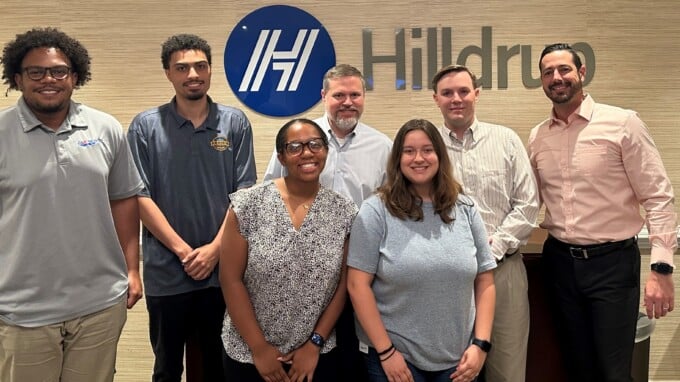Artificial Intelligence (AI) and Talent Acquisition
AI can make talent acquisition processes more efficient, data-driven, and tailored to individual needs, from efficient candidate sourcing and screening to personalized onboarding and continuous engagement.

There’s an irony among the Human Resources (HR) profession. HR is primarily responsible for recruiting and retaining employees, yet the HR professionals responsible for meeting these goals are getting harder to find. From January to December 2021, HR-related job openings were up 89%, and applications were down 13%. Additionally, the average number of people who applied for an HR position went from 59 to 28.
All of this poses one critical question: how can HR continue supporting companies’ talent acquisition needs with seemingly fewer professionals?
One solution may be the hottest topic of 2023: artificial intelligence (AI).
Leveraging technology is not a new strategy for HR. The past few decades have seen countless digital tools, programs, and platforms make HR professionals’ work more efficient and effective. AI, however, is one many expect to alter the industry from top to bottom in fundamental ways.
What is AI, Machine Learning and Natural Language Processing (NLP)?
Before digging into AI and its implications for HR, it’s important to understand what AI actually is and its related concepts, namely machine learning and natural language processing (NLP). Here is a quick summary of each:
- Artificial intelligence (AI): AI is the overarching concept of using machines or computers to perform tasks that typically require human intelligence. AI aims to create systems that can simulate human thinking, learning, problem-solving, and decision-making processes.
- Machine Learning (ML): ML is a subset of AI that focuses on developing algorithms and models that enable computers to learn from data and improve their performance on a specific task. Essentially, it is the main “how” behind AI.
- Natural Language Processing (NLP): If ML is the big-picture “how,” NLP is the way in which AI tools learn to assess, understand, and interpret human language. NLP involves various techniques, including machine learning, to process and analyze text and speech data.
How AI Can Streamline Talent Acquisition Efforts
Efficient Sourcing and Screening
AI tools can streamline the initial stages of talent acquisition by automating the sourcing and screening process. By uploading specific criteria, machine-learning algorithms can quickly sift through vast databases of resumes and identify the most qualified candidates, saving valuable time for HR professionals. NLP technology enables these tools to analyze text for keywords, skills, and qualifications, making candidate selection more accurate and tailored.
Enhanced Candidate Experience
With fewer people applying for many positions, it’s important that your candidates have a positive experience throughout the interview process. Chatbots powered by AI can engage with candidates in real-time, answering their questions, providing information about the company and job roles, and guiding them through the application process. This creates a personalized and efficient experience, leading to increased engagement and a positive brand perception.
Data-Driven Decisions
In addition to automating many talent acquisition tasks, AI tools also generate and can analyze a wealth of data, providing HR professionals valuable insights for their recruitment strategies. By tracking metrics such as application conversion rates and time-to-hire, HR teams can refine their approach and make data-driven decisions to optimize the recruitment process continually.
Predicting Employees Looking for a New Job
Replacing employees continues to be a costly affair. The average Employee Replacement Cost (ERC) can equal anywhere between six months to two years of an employee’s salary. AI can predict employee turnover by analyzing historical data and identifying patterns that might indicate a flight risk. By recognizing early signs of employee disengagement, companies can take proactive steps to address concerns, improve job satisfaction, and ultimately retain valuable talent.
Personalized Onboarding and Development
AI platforms also can help tailor the onboarding processes to each new hire’s skills, preferences, and learning pace. Chatbots or virtual mentors can guide new employees through their initial days, ensuring a smooth transition and helping them integrate into the company culture. Additionally, AI can suggest personalized training and development opportunities based on an employee’s career trajectory, enhancing their skill set and job satisfaction.
Diversity, Equity and Inclusion
AI can play a pivotal role in avoiding unconscious biases during the hiring process. By anonymizing resumes and standardizing candidate evaluation, AI ensures that hiring decisions are based solely on skills and qualifications, promoting diversity and inclusion within the workforce.
Continuous Employee Engagement
AI tools can generate, distribute, and analyze pulse surveys and conduct sentiment analysis to gauge employee satisfaction in real-time. This ongoing feedback loop allows organizations to address concerns promptly, recognize high-performing employees, and make data-backed improvements to work environments and company policies.
***
There are no signs that talent acquisition’s importance – nor the associated challenges – will subside in the near future. According to one survey of HR professionals, 73% reported experiencing recruiting and hiring burnout. AI tools can offer some help in this regard. From efficient candidate sourcing and screening to personalized onboarding and continuous engagement, AI can make hiring and retention processes more efficient, data-driven, and tailored to individual needs.
From support with global mobility planning and employee relocation management to relocating office equipment for remote work, our experts are here to help and guide you in the right direction. Contact us today!


